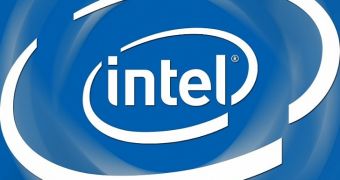Braswell is probably one of Intel's upcoming processor collections that the world hasn't heard much about. Indeed, many people might not have even heard about the name at all, much less details about the line.
Chipzilla continues to be secretive about this product collection, but enough hints have slipped through the cracks for a general outline to be drawn. Here is what has so far been found.
The Braswell line of processors will be composed of SoCs (system-on-chip devices), not CPUs (central processing units). Which is to say, they will integrate more functions than CPUs and will not have a socketed design.
In other words, they will be soldered onto whatever printed circuit board the low-end tablet, laptop or desktop happens to possess. And yes, there are plenty of “normal” desktop PCs with unswappable CPUs. That's the whole point of the BGA socket.
However, one should keep in mind that the Braswell chips have not been confirmed for BGA socket. Indeed, since they are SoCs, not CPUs, they will probably use a new design that will need PCBs / mainboards to be designed according to it, not the other way around.
Braswell will replace the Bay Trail line, suggesting that the chips will sell under the Celeron and Pentium brands. The 14nm fabrication process will spawn them.
On that note, the chips will be superior all around, with better CPU and GPU performance, as well as lower energy requirements due to higher efficiency.
Thus, they should function on even less than the 4.3W boasted by the Celeron N2808 we wrote about just a few short hours before this article's publishing.
The first Braswell SoCs from Intel will come out in March 2015, or at any point between the middle of that month and May. It depends on the 14nm chip yield.
After that, the line will no doubt go through a couple of revisions, just like Bay Trail has gone through two so far, each bringing with it substantial improvements to performance and power efficiency.
It is difficult to say what competition the Braswell line will have. Advanced Micro Devices has made it a point to stop its products from being examined in comparison to Intel's. Initially, it was just on the high-end front that the competition “stopped,” but the phenomenon extended to the other A-Series and FX APUs/CPUs.
Now, though, with AMD having promised a 25-fold increase in energy efficiency, it is likely that something with the same customer target as Braswell will debut in the first half of 2015.

 14 DAY TRIAL //
14 DAY TRIAL //